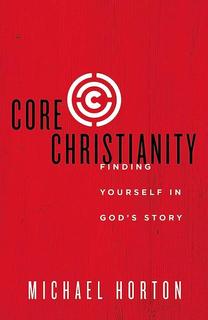According to a Barna survey, 87 percent of today’s Evangelical Christians (the heirs of the Reformation) affirm that medieval Roman Catholic conviction, that “God helps those who help themselves.” Two-thirds of the Evangelical Christians in America said that we all pray to the same God whether we’re Buddhists, Muslims, Jews or Christians.
Through the middle ages, Christianity became entangled with the vines of superstition, ignorance and spiritual lethargy that same thing we see all around us today. When Luther uncovered the theological scandal, the fragile Roman scaffolding began to creak. The essentials of the Reformation were doctrinal. It was part of the Renaissance to call for a return to the original sources, so it made sense that Christian scholars returned not only to the great classics of Western civilization and to the early fathers, but to the biblical text itself.
The Reformation was the greatest back to the Bible movement in the history of the church since the death of the apostles. But they went back to the Bible not simply as an end in itself, but in order to recover the essential truths that the Bible proclaimed and that the church had either forgotten or actually rejected. Those essentials were Scripture alone, Christ alone, grace alone, faith alone and to God alone be the glory.
Why is the Reformation needed today?
What was so special about the Reformation in the first place that makes a second one so worthwhile?
Well, do you believe that the Reformation got these doctrines out of balance with other doctrines as the Roman church believed? Or do you believe that the Bible teaches that we are saved by grace alone through faith alone because of Christ alone to the glory of God alone and that this is the Bible’s central message from Genesis to Revelation?
If it’s the Bible’s central message, then it must be essential for us as it was for the Reformation in the 16th century. The problem we’re facing as a church today is that our situation is even worse than it was for the medieval church. Now just look at each of those slogans in the light of today’s realities, first of all the so-called evangelical, Bible-believing Christians in America are supposedly the spiritual heirs of the Protestant Reformation, and yet according to their responses to recent surveys, their views are actually much closer to those of medieval people before the Reformation.
The battle cry, “Scripture alone,” is rarely heard even in these conservative Protestant churches today as pop psychology, marketing, and management principles, pragmatism, consumerism, sociological data and political crusades tend to have the greatest authority and weight in the churches. Christ alone is challenged by the voices of those who are following our culture of religious pluralism insist that Jesus is the best, but not the only way to the Father. In fact, two-thirds of the Evangelical Christians in America said that we all pray to the same God whether we’re Buddhists, Muslims, Jews or Christians, two-thirds. Grace alone has fallen prey once more to the moralism and self-confidence of the human heart.
The popular phrase in the medieval church was “God will not deny his grace to those who do what lies within their power.” A modern equivalent is “God helps those who help themselves,” and according to a Barna survey, 87 percent of today’s Evangelical Christians (the heirs of the Reformation) affirm that medieval Roman Catholic conviction. And as for the Reformation battle cry, faith alone, which was the central concern, how far has the preaching of justification by faith alone fallen from the priorities of the modern evangelical church as the major centers of evangelical power have now publicly acknowledged that the doctrine of justification by faith alone no longer presents any obstacle to fellowship with those who deny it?
Evangelical seminary professors now freely attack the doctrine by which as the scriptures teach, the church stands or falls. And as for the slogan to God alone be glory, well, religion today is human-centered rather than God-centered. We see it in worship, we see it in every facet, in evangelism. Once again even the churches are focused on how God can make us happy and fulfilled.
Recovering the Gospel: the Solas of the Reformation
The Reformers didn’t sit down one day and come up with the sola sayings. However, these solas were still a significant emphasis of the Reformation. There are five solas (sola meaning “only” or “alone”).
Sola Scriptura
The first is sola Scriptura, or “Scripture alone.” This means that only scripture has the authority to speak from God because it comes from God. We can think of the church like a teacher. It teaches us scripture but must still submit to the authority and content of scripture. It does not have any authority in and of itself outside of the authority that teaching the Word of God gives it.
Solo Christo
The second is solo Christo, or “Christ alone.” This means that Jesus Christ is the only mediator between God and sinful humanity. It is only by Christ that our sins are taken away and we have any righteousness or goodness before God. Only through Christ Jesus do we have reconciliation with God the Father. Christ bridges the gap between God and sinful humanity by taking on the debt and curse of sin for us.
Sola Fide
The third is sola fide, or “faith alone.” This means that only by faith in Christ do we have any salvation. We cannot earn anything by our own efforts or good works. Instead, it is only by believing in Jesus and depending upon Jesus’ righteousness that we can be saved from sin and death. Jesus earned good works in our place and gives them freely to us, like credit to our account.
Sola Gratia
The fourth is sola gratia, or “grace alone.” This means that salvation is only by God’s grace to us. That is, we do not and cannot deserve God’s salvation by our good works. God sent his Son Jesus to do what we could not do and through Jesus offers us undeserved salvation for free.
Soli Deo Gloria
The fifth is soli Deo gloria, “God’s glory alone.” This means that everything we do and believe is for the glory of God only and not for the glory of self or men.
The fact that God comes near to us in forgiveness and in grace through Christ was really at the heart of the Reformation. We are made right before God only because of the work Jesus has accomplished for us. Good works follow as fruit grows from a tree.
Now notice how the modifier, alone, appears in each of these slogans. After all, the medieval church still believed in Scripture, in Christ, in grace, in faith, and in God’s glory. The church had never denied these articles of faith and has in fact forbidden others to do so.
Learning from the Reformation
At the time of the Reformation, the medieval church (what we now think of as the Roman Catholic Church) also believed Scripture had authority, that people needed to have faith in Christ, and that grace was necessary, but they missed the “only” part. They added or defined each of these things to mean something not found in the Bible and this is why we need to recover the emphasis of the Reformation solas to this very day.
It was that word “alone” that brought Rome and the reformers into conflict. Scripture is the only ultimate authority for faith and practice. Christ is the only mediator between God and sinners. Faith is the only instrument of our justification and God is the only one in this whole business who deserves any credit or praise from beginning to finish. These slogans formed the core of the Reformation.
Folks, we are very interested in the Reformation not because it’s a thing that happened in the past but because we’re the same stew. We’re not slavishly devoted to the 16th century Reformation. They made mistakes just as we will, but we do believe that it was the single greatest recovery of apostolic Christianity since the death of the apostles themselves.
By God’s grace, they returned God’s Word to the stage in all of its authority, conviction, grace, and redemption, bringing that long-awaited renewal to the Body of Christ that so many had sought through more superficial avenues, and we’re right at that place now where everybody’s seeking renewal and revival through all of the avenues that were pursued before the Reformation, before they got to the doctrinal and theological heart of the crisis.






